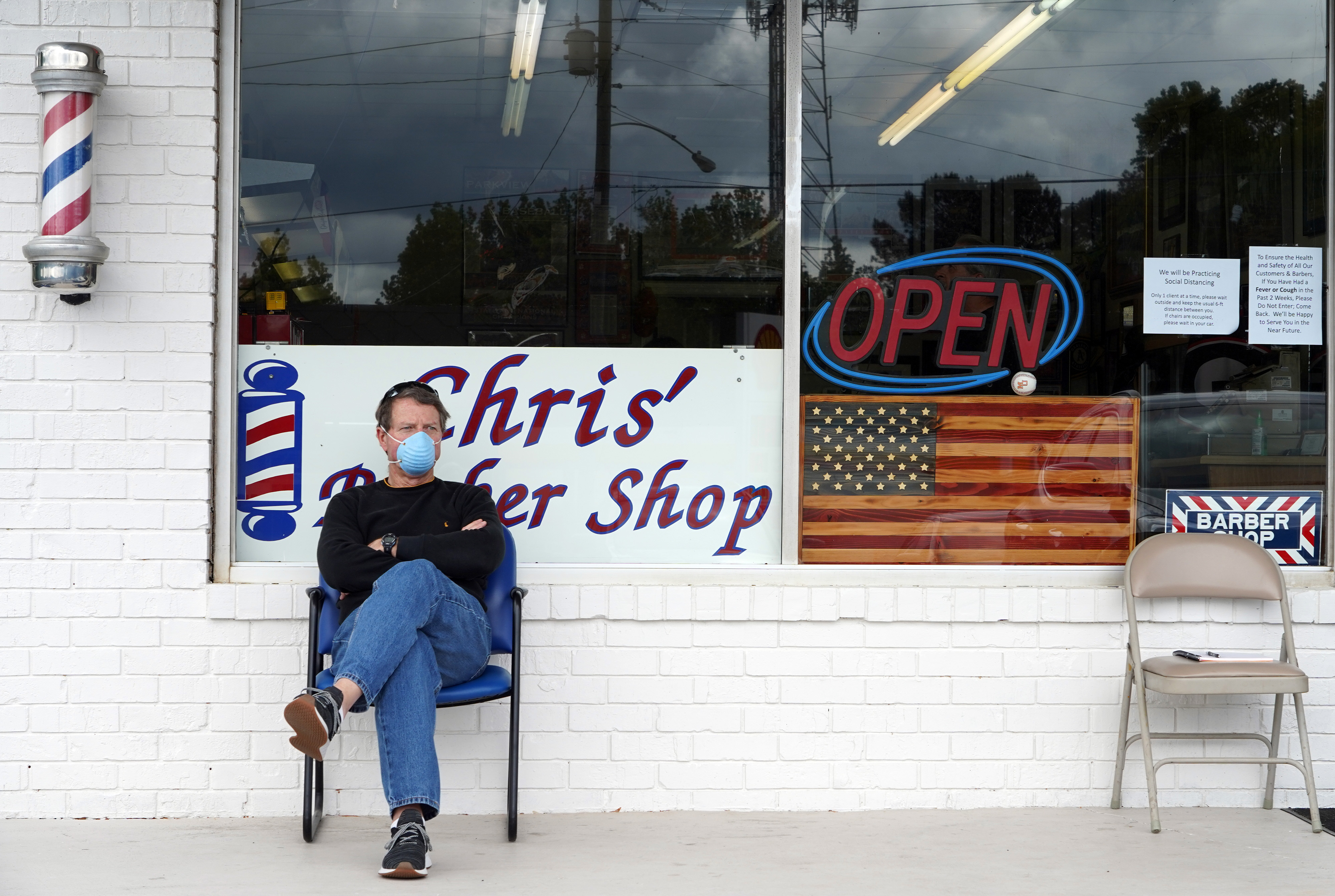Liability: Who bears the risks of reopening?
The smartest insight and analysis on the issue, rounded up from around the web

A free daily email with the biggest news stories of the day – and the best features from TheWeek.com
You are now subscribed
Your newsletter sign-up was successful
The smartest insight and analysis, from all perspectives, rounded up from around the web:
Lawmakers on Capitol Hill formed new battle lines this week over legislation to shield businesses from pandemic liability claims, said Siobhan Hughes and Jacob Gershman at The Wall Street Journal. As some parts of the economy begin to emerge from lockdown, companies fear "a wave of litigation" as workers return to factories and stores and potentially fall sick from Covid-19. Many businesses are "emphasizing the steps they are taking to protect workers, from disinfecting facilities and setting up plexiglass dividers" to staggering shifts for better social distancing. But Republicans and trade groups such as the U.S. Chamber of Commerce argue that many employers "might be deterred from reopening" without an added legal buffer. Beyond raising the bar for proving a company is at fault for a workplace illness, business advocates argue for protection from privacy suits if a company discloses a worker's illness for safety reasons, and a legal shield for companies that are manufacturing products during the crisis that are new to them, such as personal protective equipment.
This is "abhorrent," said Leah Garces at New York Daily News. Stripping employees of the right to sue over an unsafe working environment — during a pandemic, no less — means workers or their loved ones "may never receive due compensation." President Trump has already signaled to workers in meat-processing plants that they don't matter. His Defense Production Act order to meat packers promised the industry new liability protections, rewarding companies that have already let the virus spread thanks to their "failure to protect workers." Republicans are pushing the same tort reform agenda they've been trying to move forward for years, said The Washington Post in an editorial. Existing tort law already "requires proof of a causal link between company conduct and worker injury," a high standard. Additional "safe harbor" protections for law-abiding companies only "for the duration of the crisis" might be negotiated, but Congress shouldn't be "helping companies make excuses for deadly failures."
The Week
Escape your echo chamber. Get the facts behind the news, plus analysis from multiple perspectives.

Sign up for The Week's Free Newsletters
From our morning news briefing to a weekly Good News Newsletter, get the best of The Week delivered directly to your inbox.
From our morning news briefing to a weekly Good News Newsletter, get the best of The Week delivered directly to your inbox.
It's not just reckless companies that need this protection, said Bradley Blakeman at The Hill. States and cities are ending lockdowns in different ways, "opening the door to second-guessing, disagreements, and, yes, lawsuits." The coronavirus is a "breeding ground of opportunity" for litigants with frivolous claims. Leaving businesses vulnerable to punishment for hard decisions made in good faith increases uncertainty and adds "further harm to our fragile economy." Covid-19–related lawsuits are already here, said James Copland at City-Journal. Walmart is facing a wrongful-death suit from the family of a deceased worker, while workers at Smithfield Foods have sued the meat company over the viral outbreaks in its plants. Businesses can't operate under the constant threat of such litigation. There are ways to compensate those who suffer real injuries without relying on the broken tort system. Congress provided a fund for families of victims of the attacks on Sept. 11, "precluding potentially ruinous lawsuits against airlines and companies involved in disaster response." There are ways to shield business from liability without hanging workers out to dry.
This article was first published in the latest issue of The Week magazine. If you want to read more like it, you can try six risk-free issues of the magazine here.
A free daily email with the biggest news stories of the day – and the best features from TheWeek.com
-
 6 of the world’s most accessible destinations
6 of the world’s most accessible destinationsThe Week Recommends Experience all of Berlin, Singapore and Sydney
-
 How the FCC’s ‘equal time’ rule works
How the FCC’s ‘equal time’ rule worksIn the Spotlight The law is at the heart of the Colbert-CBS conflict
-
 What is the endgame in the DHS shutdown?
What is the endgame in the DHS shutdown?Today’s Big Question Democrats want to rein in ICE’s immigration crackdown